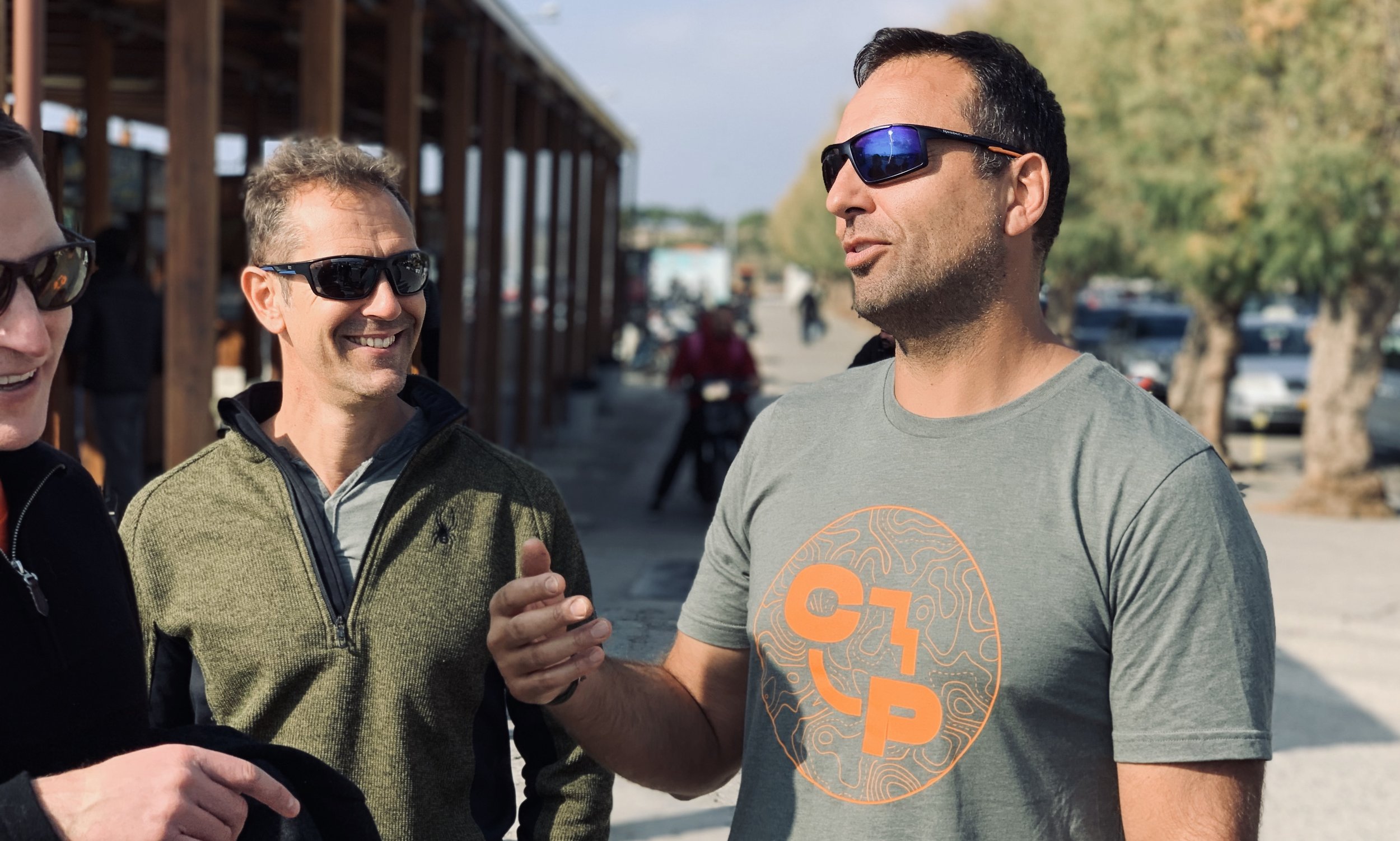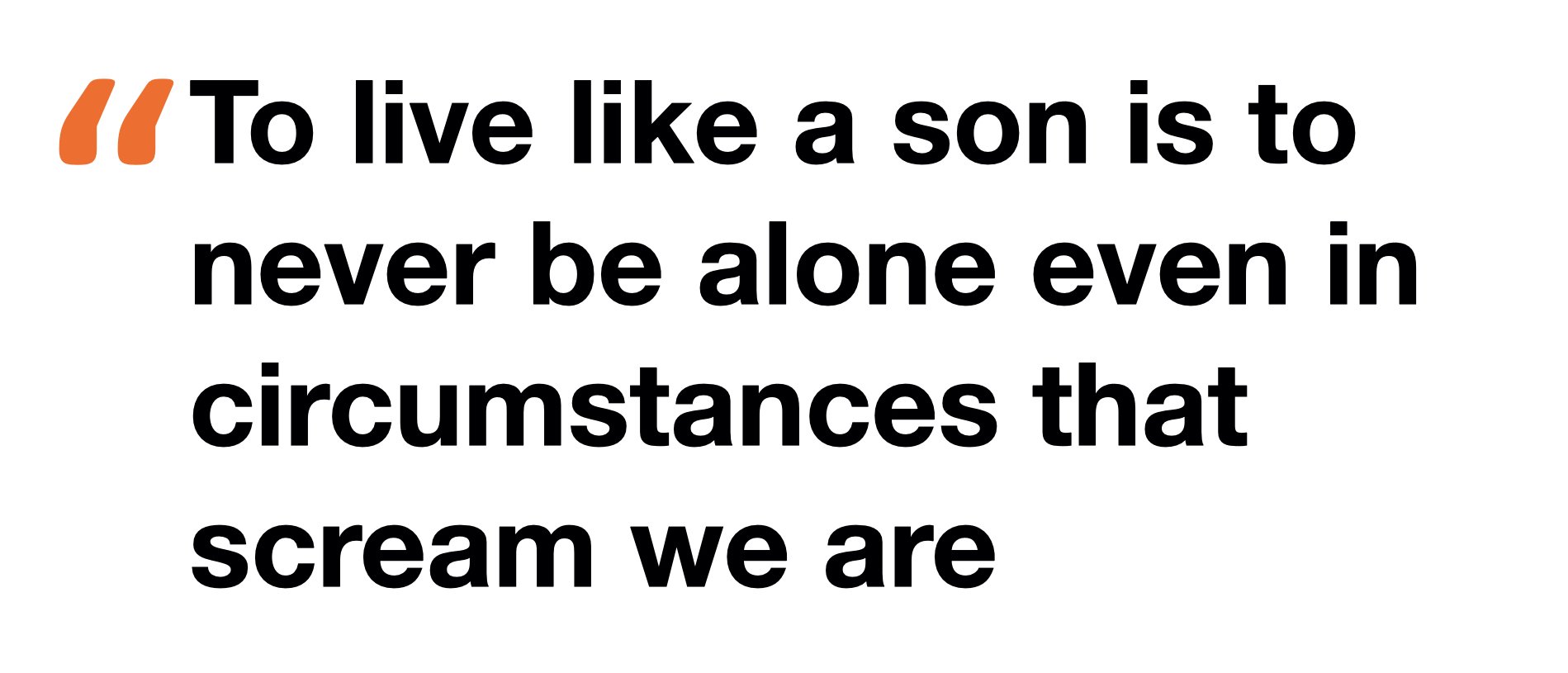Word of Wisdom: Alone
“Being alone when one’s belief is firm, is not to be alone.” Berthold Auerbach
As an undergraduate English major, I became enamored with the Anglo-Saxon poem The Wanderer, which, after Beowulf, is perhaps the best known work of the surprisingly small surviving corpus of Old English literature.
The elegiac tone and emotive verse have captivated me since; the poem’s notes of longing and lament, reflection and remembrance, weariness and worship seem to echo across the ages. Recalling and bemoaning “the lack of a mead-hall” and “the memory of kinsmen”, the exiled, anonymous author weeps “so this middle-earth each day fails and falls”. Indeed, “here money is fleeting, here friend is fleeting, here kinsman is fleeting”.
The protagonist can be forgiven for being a bit of a wet blanket, given that he was ostensibly battling the freezing waves of the North Sea on a solo voyage. Nonetheless, he rouses himself in the end with the galvanizing maxim “a hero must act with courage” and “seek mercy from the Father in the heavens…where all permanence rests”.
You might at this point begin to share my appreciation of this enigmatic text (I’m sure it wouldn’t hurt if I mentioned that J.R.R. Tolkien practically quoted it in The Two Towers).
But it begs the question: why do the lamentations of one who feels utterly alone resonate within us? Perhaps because we have all felt alone. Why do we come back to texts like this? Because they remind us we are not alone in feeling alone.
That realization by itself strengthens us, because to be alone is to be uniquely vulnerable. It is to be isolated, and hence exposed to threats—of all sorts. Tangible and intangible. Physical and emotional. Natural and supernatural. Whether a physical predator or spiritual accuser, the aim of a beast of prey is to separate…and make alone.
Enforced alone-ness breeds breakdown. Indeed, research into the psychological effects of solitary confinement indicate it can generate (or exacerbate) anxiety, depression, anger, obsessiveness, and a host of other maladies. It amplifies agitation and constricts contentment.
And yet we know there is a place for retreat, for the intentional withdrawal into times and places of solitude for rest, reflection, and revelation. So where does the difference exist between suffering alone and advisable seclusion?
Let’s look to the word itself.
The English term alone comes to us from the Old English all ana, meaning “unaccompanied, wholly by oneself”. It was literally to be “without companions”. Not simply solitude, or short-term seclusion, or even the feeling of loneliness. To be alone—all ana—was to be without anyone, anywhere. No companions (literally “those who share bread”). Thus, no joy, no help, and, soon, no hope.
To feel alone is to face an existential threat—moment by moment, day by day. The bad news is that this is common. The good news is that a son is never alone.
While the orphaned heart aches because no table welcomes him, and the slavish mind of a striving servant may be sent away for any shortcoming, the spirit of sonship opens to us not just acceptance, but abundance. Not solely provision, but purpose and permanence. Not simply companionship, but covering and cooperation, come what may.
To be a son is to never be alone, even when circumstances and sentiment scream to us that we are a lone wanderer on a sea of singular experience. Even when “all this middle-earth” seems to fail and fall around us, it is to know that loneliness is a lie and rejection a ruse.
And it is in this almost swaggering confidence of sonship that we can lead like a father who never leaves nor forsakes—who always invites and invests in other sons and daughters so they too no longer endure unaccompanied. Who always seeks, serves, strengthens those endangered by the deceit that they are alone.
Perhaps that, alone, is our calling in such an age as this.
“Yet I am not alone, because the Father is with me.” John 16:32b



